The Co-operative Group has “lost its mojo”. It’s a brave admission for any executive to make, but that’s the conclusion Steve Murrells came to after joining the society as head of food (he’s now head of retail having taken on additional responsibility for pharmacy) last summer.
While the society’s bank troubles have been very publicly played out, Murrells and his new-look management team have been putting together a strategy to turn around the “engine room” of The Co-op Group. With food and drink sales in decline for years - despite the growth in the convenience market as a whole - what explains the loss of said mojo? And how does Murrells plan to find it again?
“My early observations were that we had lost our way,” Murrells says. “We needed to accept that and get match-fit pretty quickly. We didn’t have a clear strategy and we weren’t delivering on functional elements of food retailing.”
Emotional connection
Yet although the food business was in need of some TLC, he could also see it had a lot going for it. “One of the reasons I joined was the incredible emotional connection the country still has with the Co-op brand,” he explains. “I’ve spent 15 years at Tesco and it would kill for the emotional loyalty people have for the Co-op. If we can unlock that connection and describe the compelling difference it is all about, the future could be really bright.”
The new food strategy is the key to unlocking that bright future. Learning from his time at Tesco, Murrells has adopted a “back to basics” approach. None of the actions are new, and are all being used by other retailers , but he believes it will get the society back on course.
The crux of the strategy is what Murrells describes as “getting our customers at the centre of our thinking”. It focuses on three main areas - membership, convenience and “delicious food”. As well as new initiatives such as an online offer, and connecting with the younger generation through mobile communications, the strategy also addresses the things that matter most to shoppers: availability, range, customer service and value for money.
The latter has been something of a sticking point for the society. In fact, its own survey earlier this year revealed just 10% of shoppers thought The Co-op was good value.
Murrells is clear that pricing alone “won’t sort [all] our problems” but he admits: “In truth, we didn’t have the rigour to challenge ourselves, and it kept coming up as an issue.
“We know we can do a lot more to be in a fairer pricing position than where we are today. It’s something we can never win on because we don’t have the scale, but we need to remove pricing as a barrier,” Murrells admits.
“That is very much the plan for next year. We want to be the right price on staple items and at an acceptable level for other products. We need to be within an acceptable tolerance depending on the mission.”
Murrells on…
Co-op Bank: “It’s an obvious concern for us, but we’ve got a clear plan for the bank. We are arriving at the truth now and we need that to play its course.”
Prices : “Who we benchmark against is going to be important, because if you benchmark against the price leader, who has let their quality slip, you end up in the wrong place on quality.”
Lads’ mags: “The comments we were receiving and the letters we were getting in got to such a level we had to do something about it. If you go back to the Rochdale Pioneers, that’s what they did. They changed markets by not accepting the status quo.”
Young shoppers: “We have got to connect with a younger generation in the same way we have connected to the older generation. We need to be relevant to their needs.”
Marketing : “Our TV ads have got people talking, and are dramatically starting to move away from line and price to tell an important story and the early echoes of great food.”
Promotions : “Many retailers suffer from a very long tail on promotions. We certainly have in the past. We won’t have that problem in the future. We will cut the number but make them work harder for us. They will be real promotions, rather than, let’s say, slightly artificial ones.”
Fresh format stores
Away from pricing, Co-op stores are set to change. Last year, trials took place at about 200 stores. A number of formats were trialled but a ‘fresh format’, which saw stores dramatically increase the number of fresh lines stocked, won through. Sales in stores converted to the fresh format (or ‘generation one fresh’ as they are dubbed internally) showed “very satisfactory” like-for-like sales in the high single-digits.
‘Generation two fresh’ will kick in later this year. This will see these stores concentrate on key shopper ‘missions’ - either shopping for today, tomorrow, or for the week. It’s a big move for a business that Murrells freely admits has traditionally had a predominantly CTN offer in the past. “There’s going to be more fresh, but at the same time we don’t want to forget our ambient customers,” Murrells says. “We need to get the balance right between having an unbelievable fresh offer and an ambient range.”
‘Hero departments’ will also be created “where we think we can make a real difference in convenience, like wine , food-to-go and bakery,” Murrells explains.
“The trick will be how to do this in a convenience store rather than a hypermarket. As Tesco’s Watford store shows, you can do a lot in 120,000 sq ft, but with an area of 3,000 sq ft, you need to be more creative.” Wine is set to get the treatment first, with a complete overhaul in January.
Own label will also play a crucial role in these hero departments. As we revealed earlier this month (The Grocer 2 August), the society will relaunch its mid-tier range as Loved by Us next month. Some 700 lines will be introduced by Christmas, and Murrells is aiming to increase own-label penetration from 40% to 60%.
“Everybody is way ahead of us in own label,” he says. “We’d fallen out of love with own brand. We want to convince shoppers our own label is as good as Waitrose , Sainsbury’s or Marks & Spencer .”

State of the art development
The society’s new HQ in Manchester is already playing a key role in this. One Angel Square includes state-of-the-art product development kitchens where the Co-op can not only create new lines, but also try them out on its staff and benchmark them against competitors.
Murrells believes their significance cannot be underestimated. “This building provides us with a real hook for future talent,” he says. “We’ve spent the last year getting our leadership ducks in a row. We are hiring class acts like Andrew Mann [customer director, from Sainsbury’s], Ian Ayling [customer change director, from Dunnhumby], Michael Fletcher [trading director, from Tesco] and Howard Reed [CIO, from New Look].
“These are people who wouldn’t have come to The Co-op a few years back, but describing the opportunity we have and using this building as a torchbearer for what the future looks like has enabled us to pull in these people.”
And it’s not just the new recruits that are benefiting from One Angel Square. “What we’ve done is set ourselves up as a support centre for our shops,” “We don’t call it head office and we certainly don’t call it Manchester anymore,” Murrells says. “That’s been very motivating for staff at the shelf-edge. We’re also introducing customer training and everyone here, including me, gets a week’s in-store training.”
Even though the costs associated with a strategy of this magnitude would run into hundreds of millions of pounds, Murrells insists it’s actually self-funding - by running a leaner business model, using technology to run the business more efficiently, taking the best part of £300m out of its distribution network over the next three years and “getting to a place where suppliers will want to work with us”.
Early indications suggest the strategy is working. “With the good weather on our backs, strands of the strategy starting to hit shelves and knowing we’re going to have 500 refitted stores that will be performing better, we are set for a very strong run-up to the end of the year,” Murrells predicts. “2013 was a year of planning, but in the second half of this year shoppers will start to see threads flowing through. The middle of 2014 is when most of what we’re trying to do will kick in and our expectations of the results then are quite demanding.”
The society releases its interim results next week. With the bank expected to dominate the headlines, Murrells is keen to make sure the food business isn’t overlooked. He will also go through the strategy in greater detail at the society’s IGD trade briefing next month.
He does, however, urge patience. “It’s going to take time,” he says. “This is a big supertanker to move and we have to reconnect with shoppers in many areas. I’m confident the plan that we’ve got is well-supported and will resonate with customers.
“We recently did a state-of-the-nation piece of research which suggests The Co-op could have a golden decade. That won’t be easy, but we’ve now got the talent to make it happen.”







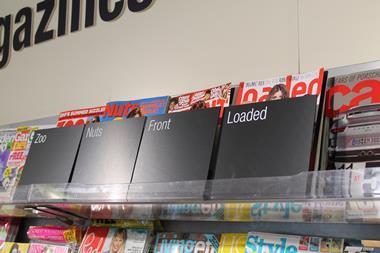
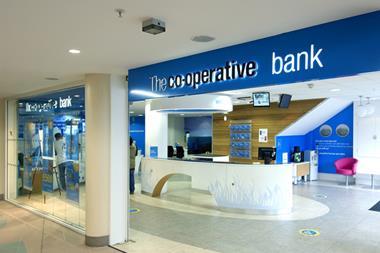
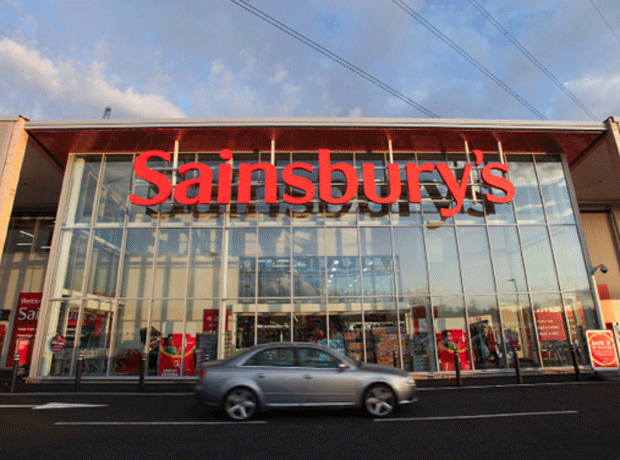
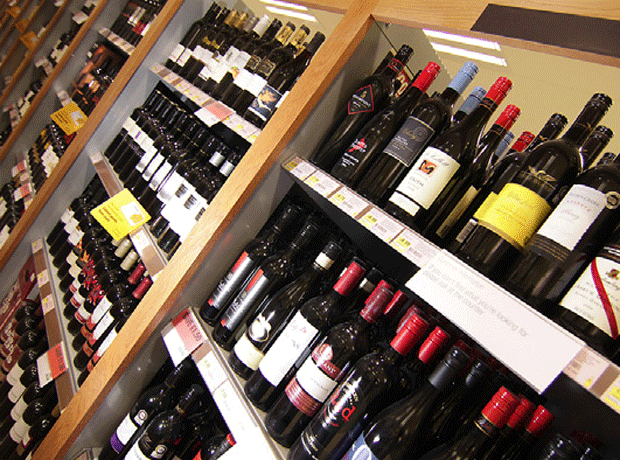
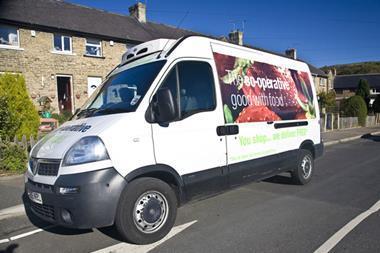






No comments yet